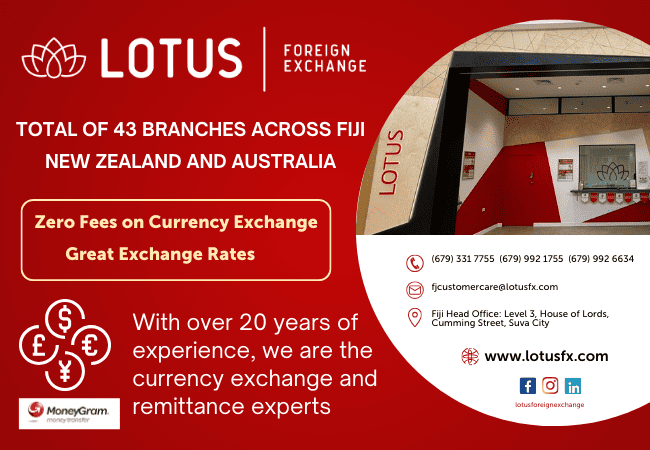Rarotonga-based filmmaker and playwright, Glenda Tuaine’s short film, Taonga: An Artist Activist, will be screened for the first time in Fiji today at the third Pacific Human Rights Film Festival.
The 15-minute short film is about Mike Tavioni, a renowned Cook Islands master carver, vaka builder, painter, poet and activist.
Tuaine’s first encounter with Mike Tavioni was when she heard him reciting a poem on New Zealand radio. “I remember hearing his voice and it stopped me. And so, I started looking at his poems before I even looked at his art. And what I found in his poetry was that he was unafraid to use words beautifully, but also be able to convey some of the most important messages about where we’re going wrong or right.
“He’s a very clever multidisciplinary artist, in that he weaves his storytelling to be able to lure you in [and] give you a message. And I think that’s real craft,” she adds.
The idea for Taonga: An Artist Activist, emerged at the time the tourism industry in the Cook Islands was being heavily impacted by the COVID-19 pandemic. As co-owner of Motone Productions, she had been involved in holding events, including staging an opera in Rarotonga during the pandemic. Then the idea of a short film was born, and through Pacific Islanders in Communications, a Hawaii-based media arts non-profit organisation, she got funding to produce Taonga: An Artist Activist.
It is her first short film, and Tuaine describes it as provocative. “It has discussions about what’s happening in the community. And Mike’s always been a political beast,” she says.
Tavioni’s activism related to a period of Cook Islands’ political history that has recently resurfaced with the pardoning of former PM, Sir Albert Henry.
Tuaine says: “I had to really research and find footage [of Mike Tavioni talking about it] because often we don’t keep those stories alive and want to sweep them under the carpet.
“The purpose of good filmmaking and good documentary making is that sometimes you have to be brave enough to be able to be [say], ‘okay I am going to put that in, I am going to tell that story.”
She says personally, making the film was a journey, and she decided to re-edit after realising the first cut was not the story she wanted to tell, and that it needed to be honest. “I thought, I’m going to get some members of my family and my community not liking that I put that [reference to corruption] in. But I also have to be true to the people, to the purpose of why I’m doing this.”
The film has had a warm reception and has been a feature of the film festival circuit.
In 2022, Tuaine won Best Short Documentary at the Brussels International Film Festival for Taonga: An Artist Activist.
She says making the film has taught her how to be a better storyteller, and how to make a film work for a global market.
“I think that’s one of the things we have to be really cognisant of, that when we make films in the Pacific, sometimes we just take it for granted. Like, ‘Oh yeah, it’ll be fine. I can use that soundtrack or I can take that picture. [But] it’s when you do it with America and [other countries], I had to do it by the book.”
Tuaine acknowledges Pacific Islanders in Communications as being a great help in getting her and other Pacific Islanders to showcase their authentic stories, and navigate the professional and legal aspects of the craft.
“You’re not sitting there going, how do I do this? You know, they’ll give you a whole suite of things, and explain to you about your errors and omissions insurance, licensing, copyright, distribution, and [about] the biggest market, ” she says.
The conversations sparked from showings of Taonga: An Artist Activist have been fulfilling, she says.
“People have identified with the fact that art [is seen] as an ‘easy pathway’, that it’s not recognised as being a valid career, that you are told you’re not going to make money and told that this isn’t the career for you.”
She says people have described feeling validated by watching the film, and “a lot more discussions on the concept of allowing yourself to write, paint, and be creative.”
“One of the things that I really loved is, back in Rarotonga, my community is really proud of where Taonga: An Artist Activist has gone…I still get people coming up to me and going, ‘Oh, Mama G or Aunty G, this is so great, take it out to people, let people see us’, because they know it’s truthful, and they just feel really proud that people around the world want to watch one of our stories, and I love that.”
With the Pacific Islands Forum Leaders meeting and its showcasing of Cook Islands culture currently winding up, she says while there is an absolute need to preserve language and cultural heritage, Pacific leaders need to look into “digital technologies and film making, augmented reality, virtual reality, gaming, and all those things… for our next generations.
“How many kids do you see with phones and are on TikTok creating? They already know how to create through phones. Let’s give them the opportunity to create through camera. Let’s give them the opportunity to create through development software that actually entitles them to be able to create virtual reality [technologies].”
With the increasing impact of climate change, Pacific countries are responding in both physical and digital ways. For example, Tuvalu aims to become the first digital nation.
“I believe that our next generation are the ones that can create those types of technology. At the moment, we’re saying that we’re not equipped to do that kind of stuff. We’d rather engage somebody from America or Australia or New Zealand to come into the Pacific to do that for us. What we need to do is actually provide some funding into the Pacific so that we can build those types of things,” Tuaine says.
“Given the opportunity and the resource, we are resourceful, it’s a new vaka that we’re sailing, and that vaka is a digital one.
“It’s a vaka that’s going to be able to provide our young people and the next generations with access to the past, present, and future. And, I hate saying it’s all about money, but it is. We need to be able to invest equally in the digital future as much as we invest into tourism.
“I want to put [Taonga] into the digital space so that it has more access. But also, when we build up our digital repository of storytelling within the Pacific, then we have the opportunity to be able to say, well, here’s our stories, here’s our knowledge base. This is what we talk about.”
Today’s screening of Taonga: An Artist Activist , will also include performances and poetry readings from Moana Loa and The Poetry Shop, and a panel discussion with filmmakers Glenda Tuaine and Meli Tuqota, poet Amelia Rigsby, and Sachiko Soro, founder of VOU Dance Group. It gets underway at 2pm.
-Words and photo: KITE PARETI

